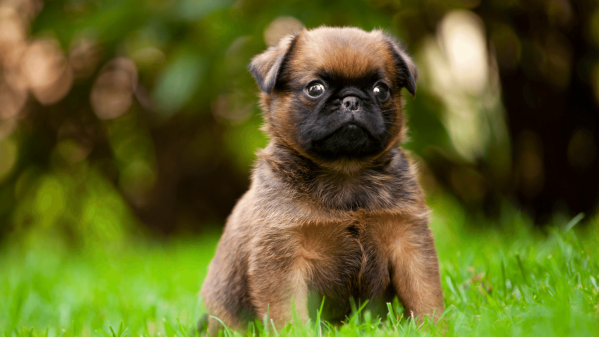Our dogs have some weird habits, from sniffing butts to eating their own poop. Sometimes we have no idea what they are thinking, or why they do what they do. It’s part of why they are so endearing — and fascinating. But sometimes, you may be playing with your dog at the park or even in your own backyard and see them start to nibble away. But why do dogs eat grass? And, more importantly, is this strange new habit of theirs something to worry about?
Weirdly enough, grass eating among dogs is actually quite common. We take a look at why dogs eat grass, how to stop your dog from eating grass, and when your dog's grass-eating habit might require you to talk to a vet.
Why do dogs eat grass?
While eating grass may seem pretty odd for humans, it’s normal for our furry friends. “While this was originally believed to be a behavior of a dog with an upset stomach, that’s not entirely true,” says Amber LaRock, a licensed vet tech and veterinary consultant with catpet.club. Grass eating can be due to boredom, the desire to scavenge, or simply enjoying the taste of grass. “An upset stomach can not be ruled out when your dog snacks on grass, but it is not the only explanation,” says LaRock.
If this is a habit your dog partakes in each time they go outside, this is likely due to the love of scavenging or enjoying the taste. However, if your dog is eating grass out of nowhere, this may be an effort to soothe an upset stomach. Here are the reasons your dog may be eating grass:
Upset stomach
Dogs are a lot smarter than we give them credit for being, and an upset stomach can cause a dog to eat grass and stimulate vomiting. “Causes of an upset stomach can be due to several reasons, including dietary indiscretion, infection, intestinal parasites, pancreatitis, or inflammatory bowel disease,” says Dr. Michelle Burch DVM from Safe Hounds Pet Insurance.
Dietary deficiency
If your dog is not getting the appropriate nutrients or minerals, such as with an unbalanced diet, they may look at eating grass. “Your dog will be attempting to find the nutrients it needs while eating grass and soil around the grass,” says Dr. Burch. Find out if your dog food is healthy enough here.
Boredom
“Dogs that are not challenged physically or mentally through the day will turn to eating grass to help eliminate their boredom,” says Dr. Burch. In the same aspect that people boredom eat, so will your dog. Find out how to alleviate your dog's boredom here.
Enjoys the taste
Some dogs love the taste of grass and may have a preference for a specific species of grass. “I had a dog that would only eat one particular grass, and any time she saw it, she would go running for it,” says Dr. Burch.
Is eating grass safe for your dog?
Eating grass is generally safe for a dog, but only in moderation. Too much can absolutely be a bad thing. "Grass is a simple plant material that is not toxic to our pups, making it safe under most conditions," says LaRock.
However, if your grass has recently been treated with any chemicals, it can become extremely dangerous for a dog to consume. “If you will be treating your yard in any way, be sure to educate yourself on the time needed to keep your dog away from the area,” says LaRock.
How to stop your dog from eating grass
A dog eating grass in small amounts may be safe, but it is still not an ideal snack option for your canine friend. “Most chronic grass eaters do this out of boredom or a desire to graze, meaning you will need to offer a distraction when they turn to this behavior,” says LaRock.
For example, if your dog is known to stop and munch on grass throughout your walks, be sure to bring a bag of small treats along. You can then distract them when they turn to a patch of tasty grass, teaching them that there are better snack options over time.
If your dog does this while in your yard, you may need to supervise them until they break the habit. "The same distraction training as above can apply, but will need to be practiced until you trust your pup without supervision," says LaRock.
When should you talk to a vet?
“I recommend a visit with your veterinarian if your dog has recently developed a taste for grass to ensure there is no underlying disease,” says Dr. Burch, who cautions additional symptoms that would indicate a veterinarian visit include vomiting, diarrhea, stomach gurgling, loss of appetite, or weight loss.
These can be symptoms of underlying intestinal disease, and it’s always a good idea to get that checked out, just in case.
